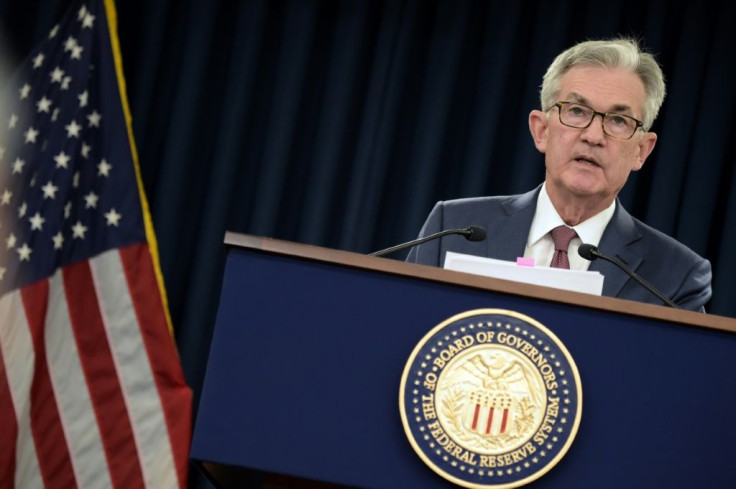US Fed Members Unanimously Reject Negative Rates: Minutes

US central bankers last month dismissed the idea of taking interest rates into negative territory, something President Donald Trump has called for many times, according to meeting minutes released Wednesday.
Evidence for the benefits of negative interest rates -- lenders must pay borrowers rather than the other way around -- has proven "mixed" in countries where it has been tried, according to members of the Fed's rate-setting Federal Open Market Committee.
Federal Reserve policymakers also said at the October 29-30 meeting that the world's largest economy has "proven resilient" in the face of persistent global difficulties but risks remain "elevated," including from Trump's trade war.
But the minutes also confirmed Fed members believe further rate cuts should be unnecessary in the near term, barring major changes to the outlook.
The Fed cut the benchmark lending rate last month for the third time this year, bringing it down to a range of 1.5-1.75 percent.
Trump has relentlessly attacked the central bank, demanding lower and even negative interest rates, claiming that relatively higher US interest rates put the country at a disadvantage against weaker economies in Europe and Asia.
During an appearance in New York last week, Trump said the Fed was blocking America from the kinds of stimulus other countries enjoyed.
"Give me some of that money. I want some of that money," Trump said of negative rates.
"Our Federal Reserve doesn't let us do it."
The minutes of the Fed deliberations made clear that under the current circumstances US central bankers have all but shut the door.
"All participants judged that negative interest rates currently did not appear to be an attractive monetary policy tool in the United States," the minutes said.
There is "limited scope" to adopt such a policy, which has not clearly benefited other countries and could have untold consequences for bank lending and household spending, the minutes said.
And negative rates would introduce "significant complexity and distortions" into the US financial system, Fed members said.
However, they "did not rule out" that circumstances could arise that would cause them to change their position.
Meanwhile, in general, the American economy appears to be doing well, with the risk of recession lessening in recent weeks.
But, while job markets and consumer spending remain strong, Fed members generally felt businesses will remain skittish about investing and exports will remain weak due to "trade uncertainty and sluggish global growth."
The Fed this year has reversed most of last year's four increases to bolster a slowing economy and provide "insurance" against looming dangers, including Trump's trade wars.
After three straight rate cuts, current interest rate levels are "well calibrated" to support growth and "likely would remain so" as long as the outlook remains broadly the same.
Efforts to end the trade wars, however, appear to be stumbling, with a partial deal announced last month sliding out of view as Trump threatens to jack up tariffs to pressure Beijing to cooperate.
Futures markets as of Wednesday predict the Fed will hold its fire until June, when a majority of investors expect cutting to resume.
© Copyright AFP 2024. All rights reserved.





















